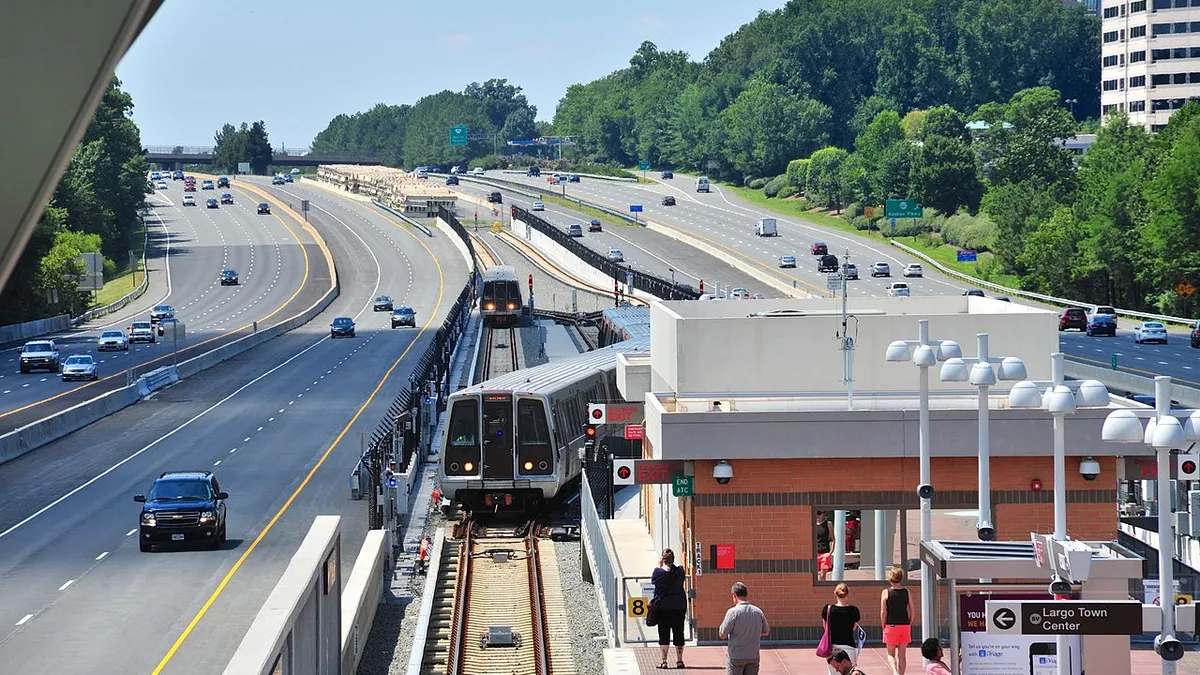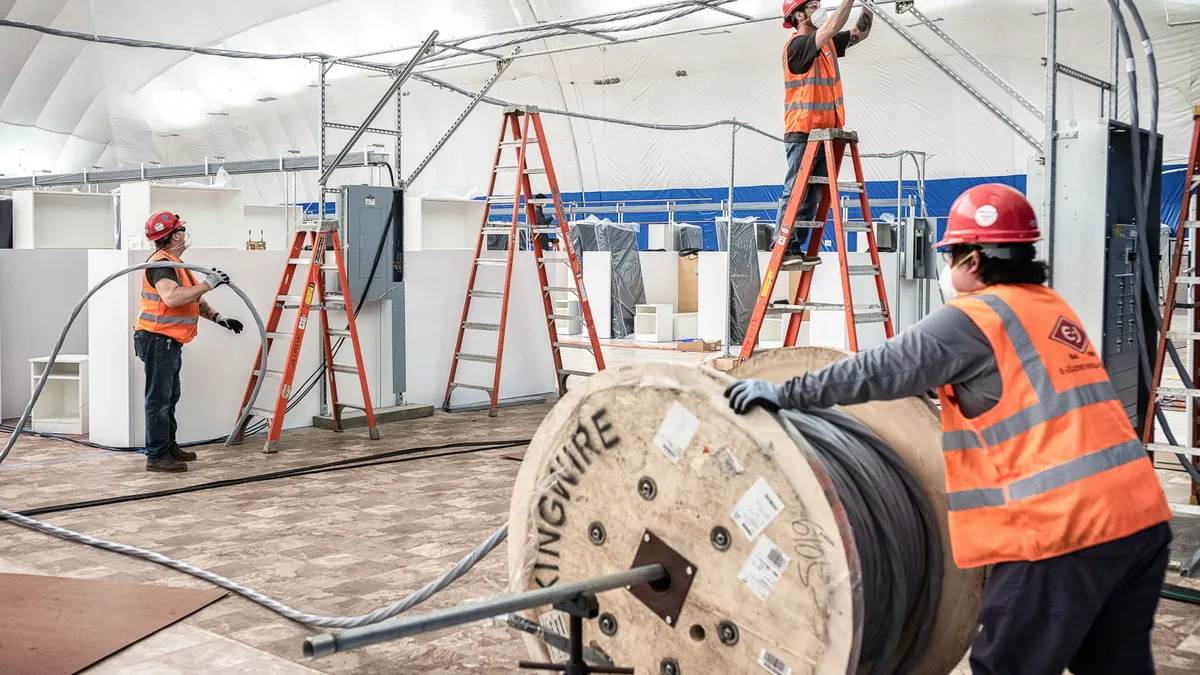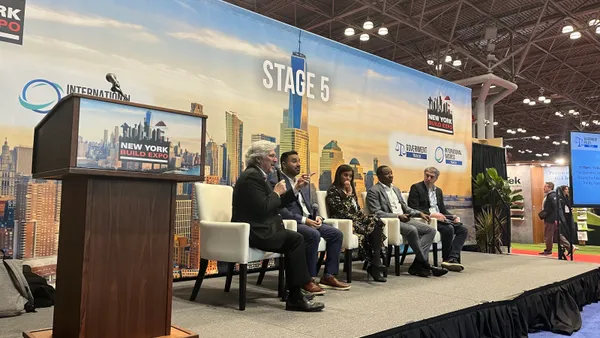Dive Brief:
- The U.S. Department of Justice announced Monday that it has reached a $1 million agreement with Pennsylvania-based Universal Concrete Products Corp. and its co-owner and president Donald Faust Jr., to settle civil allegations that it falsified test records for concrete panels it provided during construction of the Washington, D.C., Metrorail’s $5.8 billion Silver Line extension.
- The complaint against Universal claims that from about October 2015 through June 2016, Andrew Nolan, former Universal quality control manager, and other company employees supervised by Nolan doctored test records to make it look like the air content for the concrete in the panels was in an acceptable range, thereby misleading the general contractor into accepting the panels. The 1,750 faulty panels do not present a safety issue but will require additional maintenance to resist cracking and water seepage.
- The DOJ became involved after it received a whistleblower complaint under the False Claims Act from a former quality control employee at Universal. The U.S. government’s involvement stems from federal DOT loans for the project. The claims settled by the agreement are for allegations only, as there has been no official finding of civil liability.
Dive Insight:
The DOJ and the Commonwealth of Virginia first filed suit against Universal in July. Since then, authorities have also secured a judgment of more than $700,000 against Nolan, who pleaded guilty to falsifying test results for the concrete used to make the panels.
In another blow to the project and its schedule, contractor Capital Rail Constructors, a joint venture of Clark Construction and Kiewit Infrastructure, discovered faulty concrete rail ties in September. Reportedly, approximately 400 ties are up to one-half inch higher in the center than on the sides, which could cause the tracks to tilt outwards. The tie manufacturer, Rocla Concrete Tie, said the ties meet the project's specifications. As of December, the project was 13 months behind schedule and the time it will take for all parties to agree on a fix could push the opening date back even further.
For contractors, a robust quality control system can help them avoid costly construction defects. And Richard Holbrook, director of Layton Construction Co. in Utah, told Construction Dive in September that the first step toward establishing a sound quality control program was to put it in writing. A written program, he said, helps set expectations for the contractor, its subcontractors and material vendors.
Disseminating a written program and having recipients acknowledge it — in writing — can also improve a contractor’s chances in court if a sub or material supplier provides substandard work or product to the job, said Eric Olson, safety director of St. Louis-based Western Specialty Contractors. A written program can help verify if the work in question was performed correctly.













